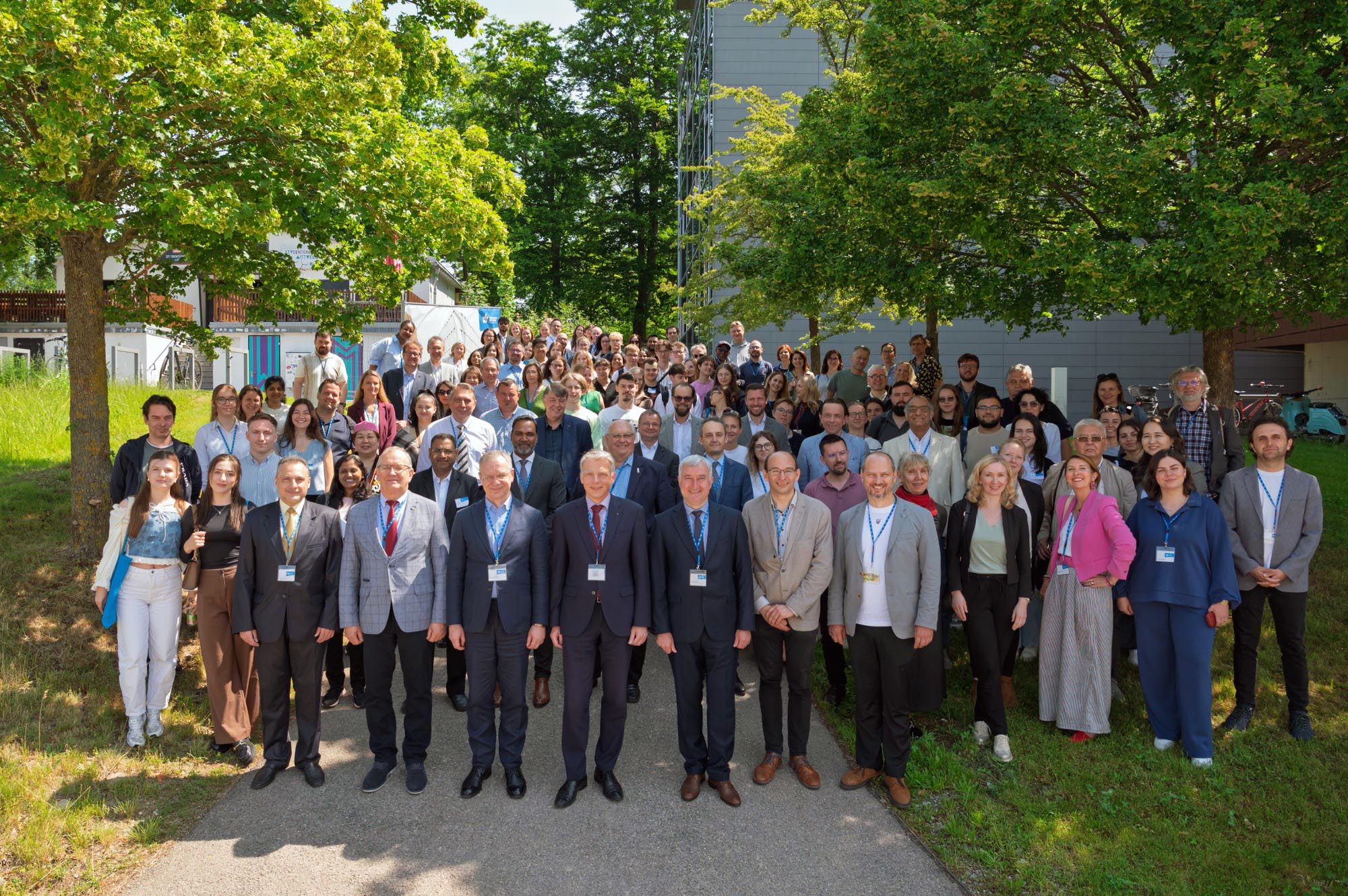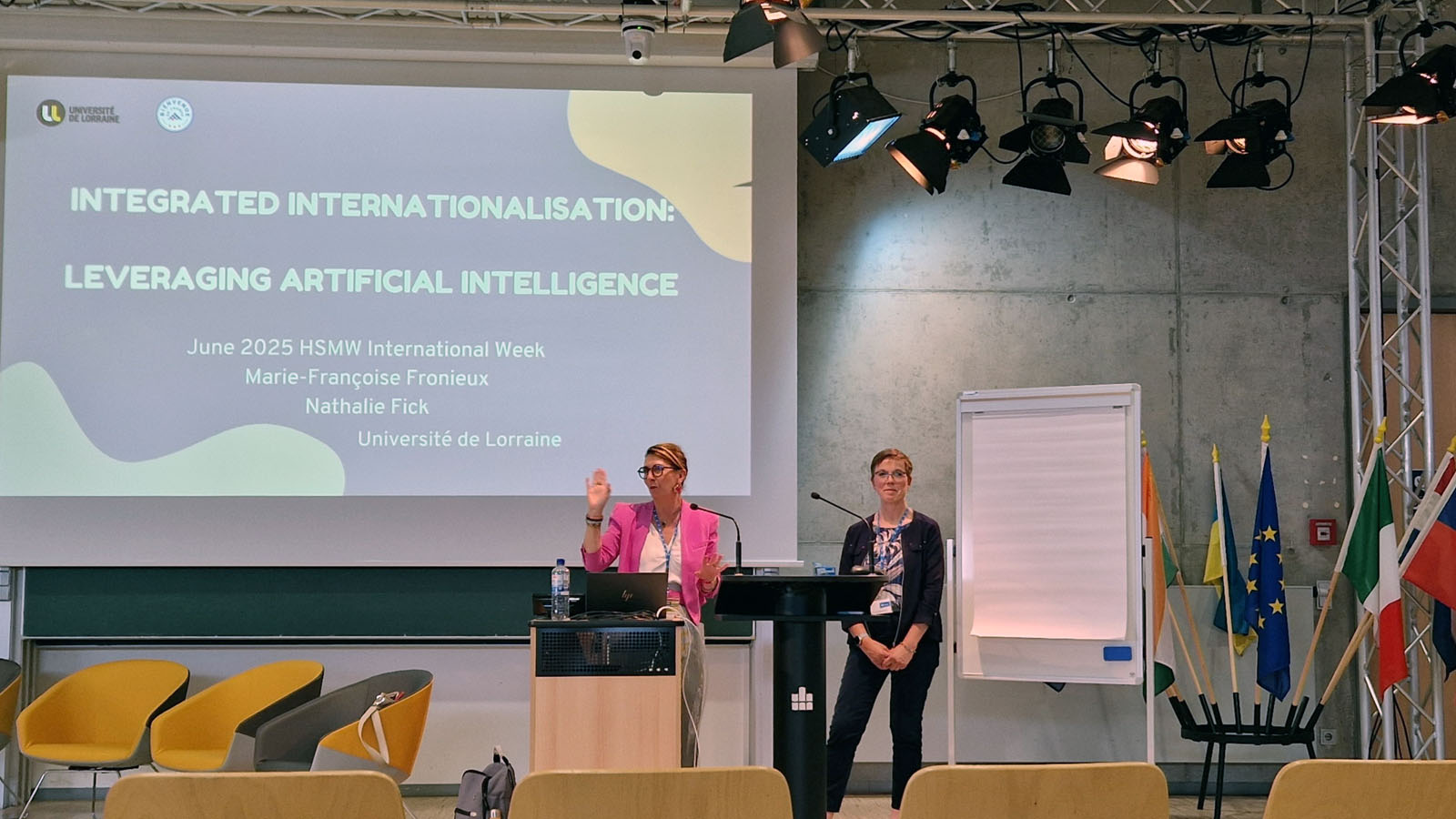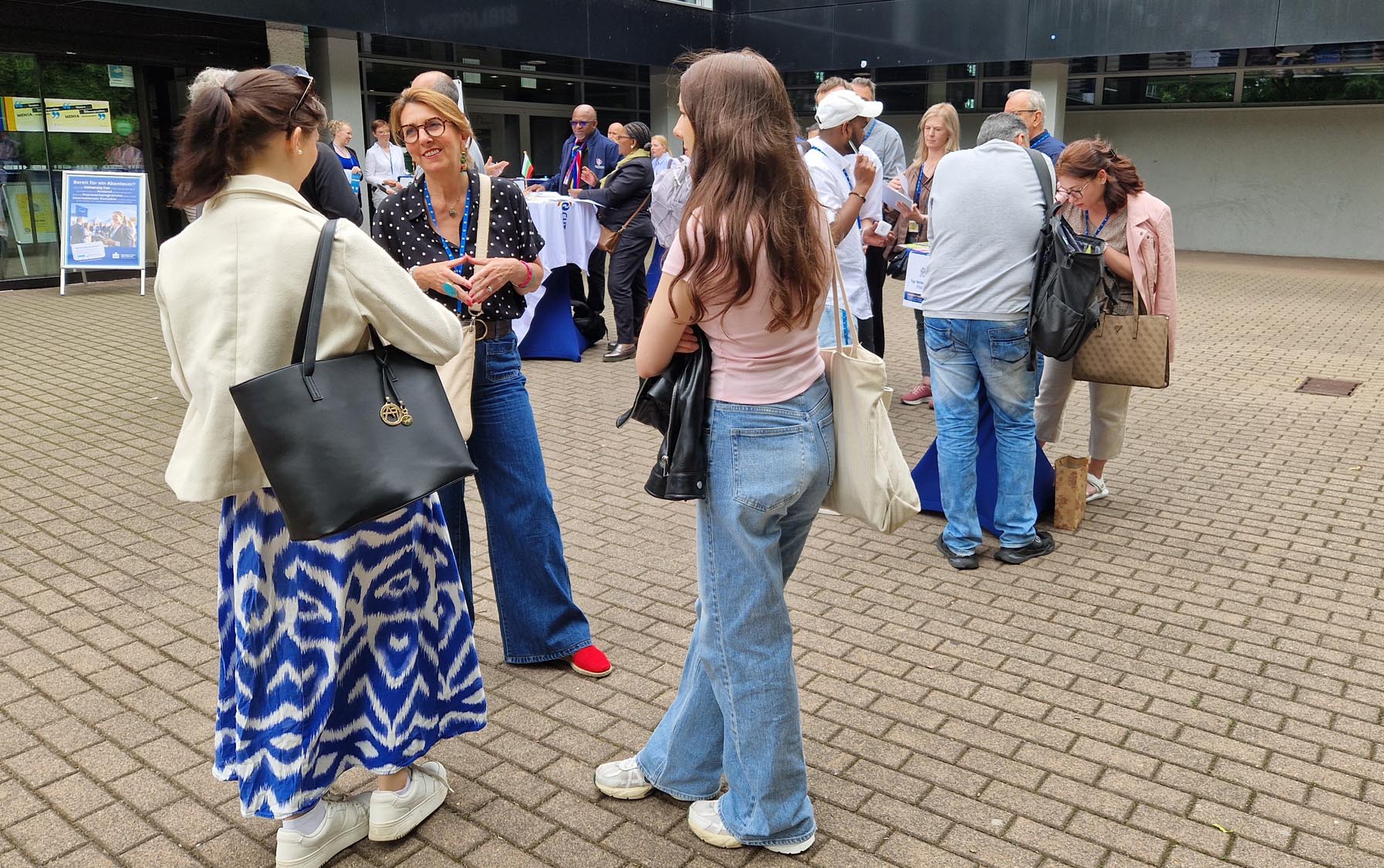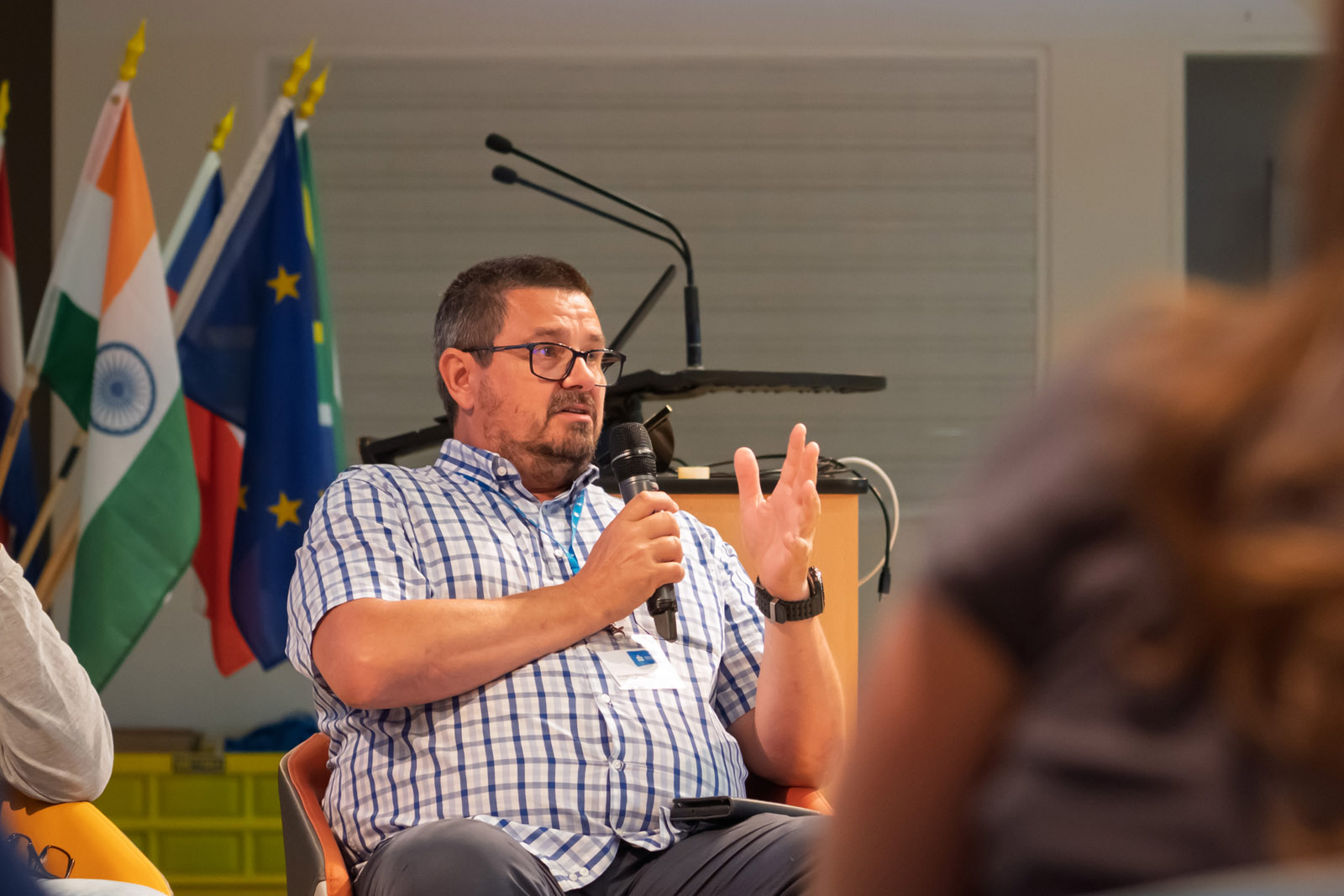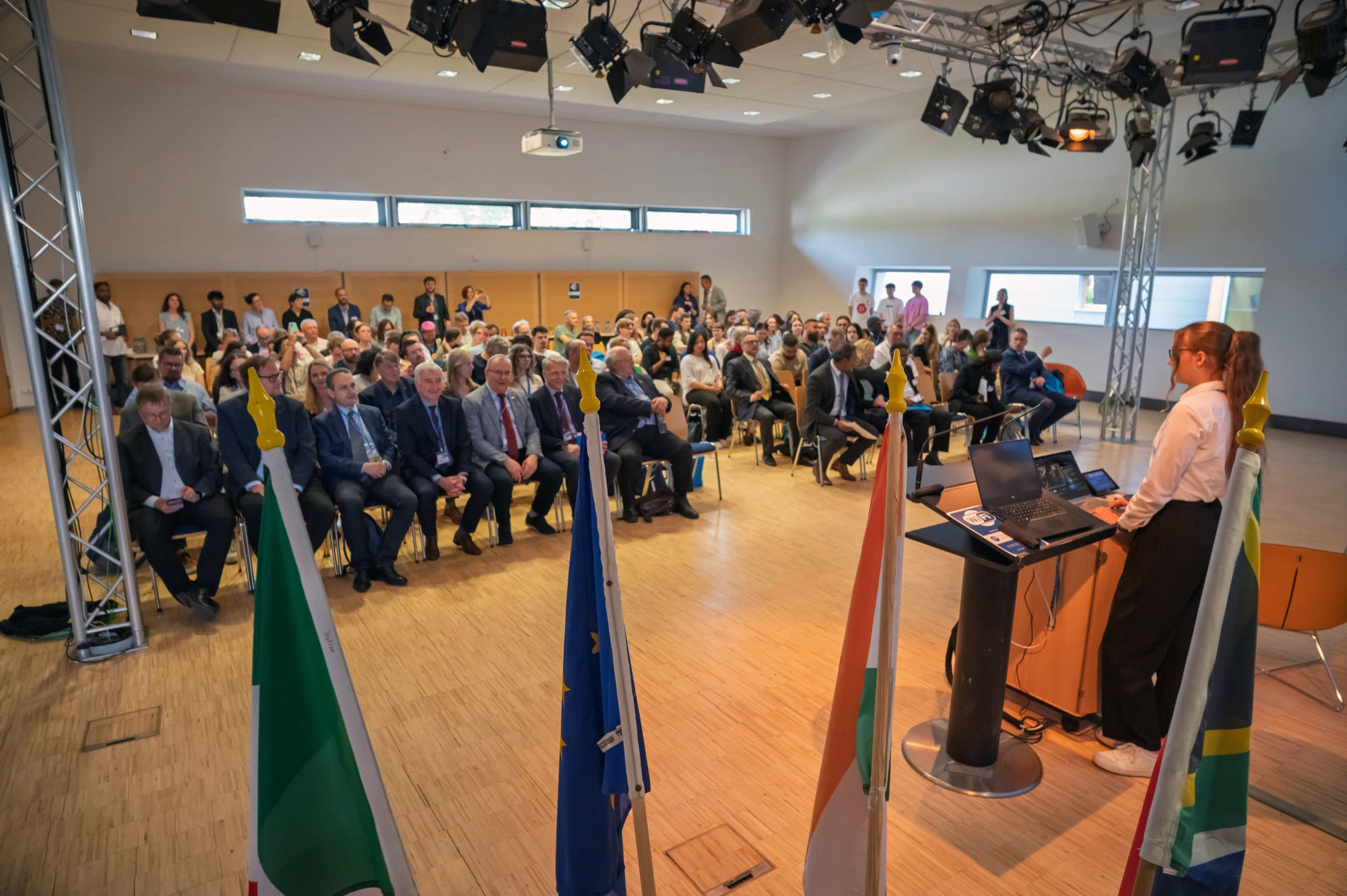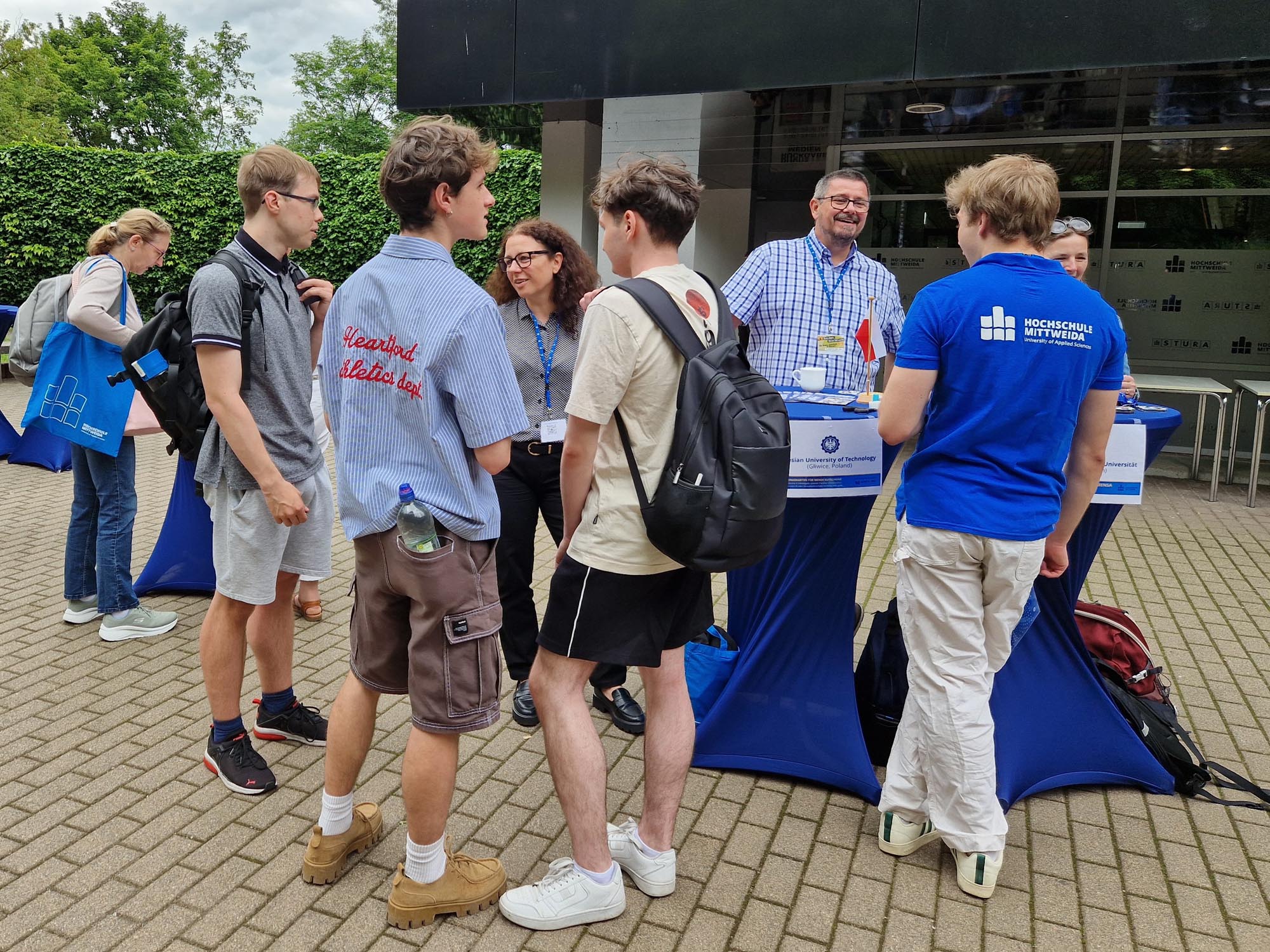From 2nd to 6th June, more than 50 guests from various international universities from three continents took part in the International Week of Mittweida University of Applied Sciences. The EURECA-PRO partners Université de Lorraine (France) and Silesian University of Technology (Poland) joined the expert week to explore possibilities for advancing integrated internationalisation at universities with the help of Artificial Intelligence.
It’s not a matter of ‘either/or’. It’s about ‘and’. More than 50 experts in the field of internationalization in higher education who met in Mittweida at the beginning of June agreed on this. The talk is of supporting both international well-educated young talents and strengthening research activities through physical and virtual mobility – meaning that the common way of students’, researchers’ and staffs’ travelling or even relocating abroad is being enriched by virtual exchange programmes. Combining both into an integrated approach and how this can be supported by Artificial Intelligence as a substantial element of digital transformation will determine the future focus in further developing internationalisation at higher education institutions.
Crucial prerequisites for this are growing an international mindset amongst students, staff and researchers as well as strengthening corresponding activities at local campuses, which is a central endeavour for EURECA-PRO’s nine universities, proofed by the strategic initiative of Université de Lorraine.
Creating entry opportunities in international studying
As the European University on Responsible Consumption and Production (RCP), EURECA-PRO connects students, researchers and professionals from across Europe to become the global educational core hub for the United Nations’ Sustainable Development Goal 12 of the same name. Through its educational offers, members of the alliance’s community will be equipped with the skills and knowledge to tackle global challenges in sustainability – which, above all, require international cooperation.
EURECA-PRO therefore aims to provide students the opportunity to learn and live in another country. In this way, they benefit early on from intercultural exchange in education and community for their personal and professional development. Currently, the European alliance offers a joint Master’s and is working on a joint bachelor’s programme that offer the unique chance to study in one of eight countries for at least one year. However, especially for young school leavers, the additional efforts of moving and learning abroad can be challenging. In preparation of potential international studies, EURECA-PRO is working on the extension of so called Blended Intensive Programmes (BIP) – virtual courses at several universities that include a short time abroad.
“Language is usually one of the biggest hurdles for young people. However, once they experience that their competency on the topic is more important than their potential weakness in language, they gain confidence and start exploring the value of interculturalism for their personal and professional development”, explains Nathalie Fick, Head of International Relation Office at Université de Lorraine. Short-term stays abroad, for example through BIPs, but also virtual offers, such as collaborative online international learning programmes (COIL), are low threshold offers for making a step forward in international education.
In addition to several online courses, the first hybrid educational offers are already available on the EURECA-PRO website.
About Mittweida University of Applied Sciences
Mittweida University of Applied Sciences is located in Saxony, Eastern Germany. Empowering the region is one of the major priorities – and the university’s impact extends far beyond. Almost 6,000 students come from over 50 countries to benefit from applied sciences in education and research, for example in engineering, natural sciences, computer sciences and biosciences, economics, media sciences as well as social work.



